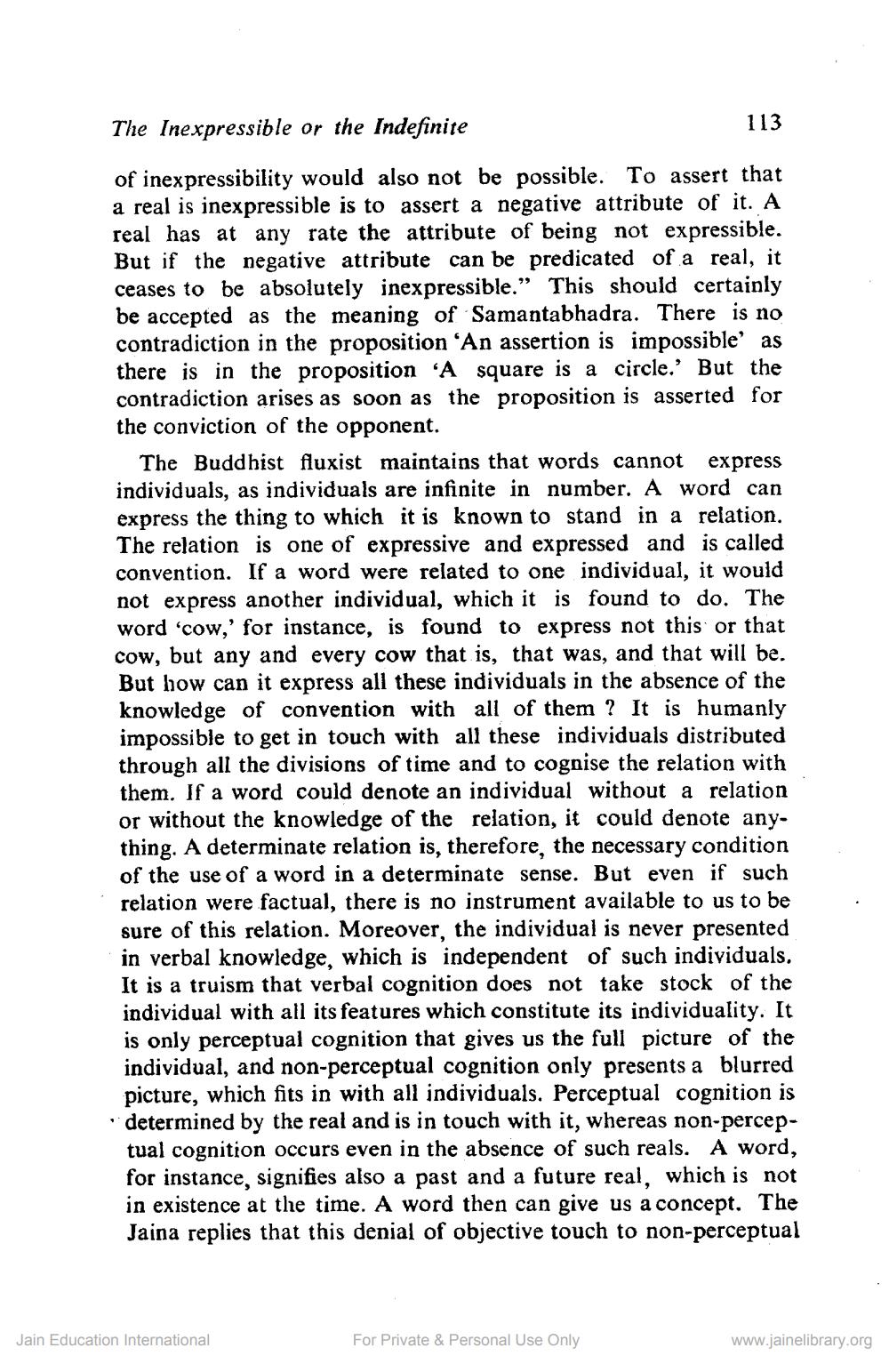________________
The Inexpressible or the Indefinite
of inexpressibility would also not be possible. To assert that a real is inexpressible is to assert a negative attribute of it. A real has at any rate the attribute of being not expressible. But if the negative attribute can be predicated of a real, it ceases to be absolutely inexpressible." This should certainly be accepted as the meaning of Samantabhadra. There is no contradiction in the proposition 'An assertion is impossible' as there is in the proposition 'A square is a circle.' But the contradiction arises as soon as the proposition is asserted for the conviction of the opponent.
The Buddhist fluxist maintains that words cannot express individuals, as individuals are infinite in number. A word can express the thing to which it is known to stand in a relation. The relation is one of expressive and expressed and is called convention. If a word were related to one individual, it would not express another individual, which it is found to do. The word 'cow,' for instance, is found to express not this or that cow, but any and every cow that is, that was, and that will be. But how can it express all these individuals in the absence of the knowledge of convention with all of them? It is humanly impossible to get in touch with all these individuals distributed through all the divisions of time and to cognise the relation with them. If a word could denote an individual without a relation or without the knowledge of the relation, it could denote anything. A determinate relation is, therefore, the necessary condition of the use of a word in a determinate sense. But even if such relation were factual, there is no instrument available to us to be sure of this relation. Moreover, the individual is never presented in verbal knowledge, which is independent of such individuals. It is a truism that verbal cognition does not take stock of the individual with all its features which constitute its individuality. It is only perceptual cognition that gives us the full picture of the individual, and non-perceptual cognition only presents a blurred picture, which fits in with all individuals. Perceptual cognition is determined by the real and is in touch with it, whereas non-perceptual cognition occurs even in the absence of such reals. A word, for instance, signifies also a past and a future real, which is not in existence at the time. A word then can give us a concept. The Jaina replies that this denial of objective touch to non-perceptual
•
113
Jain Education International
For Private & Personal Use Only
www.jainelibrary.org




